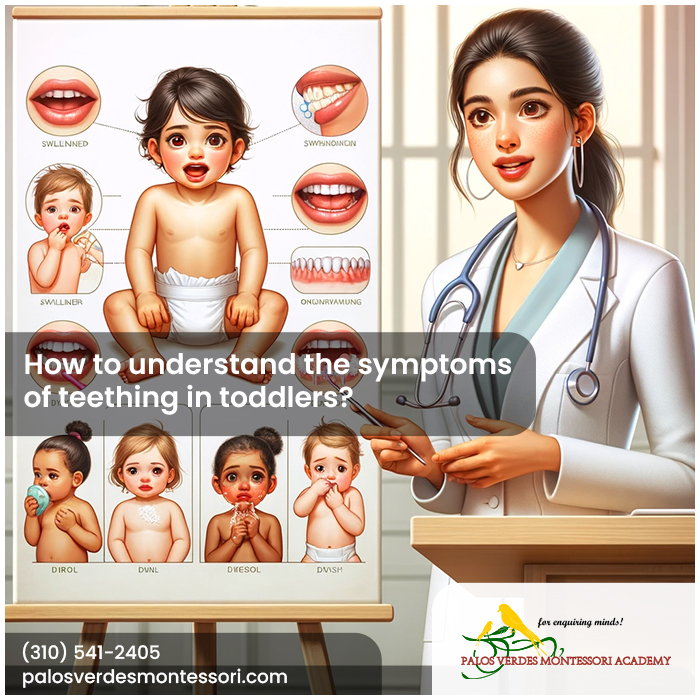How to understand the symptoms of teething in toddlers?
A toddler's teething stage is an important developmental stage, but it may also be difficult for the youngster and the parents. It's critical to recognize the signs of teething to provide your child with the support and comfort they require at this time. In this blog, the Montessori Torrance, CA, team has mentioned signs that can help you recognize when your toddler is teething and how to offer support.
Let's read it out:
Irritated Gums
Red and swollen gums are among the most typical symptoms of teething in young children. There may be pain and swelling in the affected area when the new tooth starts to pierce the gum tissue. Your toddler's gums may become more noticeable or swollen than normal in the vicinity of the tooth eruption site. To feel for these changes, gently run a clean finger down the gums.
Excessive Drooling
Drooling frequently increases as a result of teething since it stimulates your toddler's salivary glands. Your child may probably start drooling more often and have more saliva than normal trickling down their chin. It's crucial to always have a bib or soft towel on hand to wipe their chin and stop any possible discomfort or rashes.
Chewing and Biting
Toddlers use their lips to investigate their surroundings, and when they are going through teething, they could have a stronger desire to bite and chew on different items. Your kid may be chewing on their fingers, toys, or even furniture in the house. This is a normal reaction to the pain associated with teething. Consider providing teething toys made especially for this purpose to provide safe relief. These toys can help massage your child's sore gums and are composed of materials that are safe for them to chew on.
Increased Fussiness and Irritability
Toddlers may find teething to be difficult, and this discomfort frequently leads to increased fussiness and irritability. Your child could be less happy, more agitated, and more difficult to calm down than normal. They can weep more often or become restless as a way of expressing their discomfort. During this time, it's critical to be patient and provide them with additional warmth and hugs to make them feel more at peace.
Conclusion
It's critical to identify teething symptoms in toddlers to provide them with the support and attention they need throughout this developmental stage. Watch out for signs of gum irritation, excessive drooling, biting and chewing habits, fussiness, and even sleep disruptions. Knowing what these symptoms mean can enable you to support and soothe your child throughout this normal, but occasionally difficult, stage of development. If you are worried about your child's teething, always speak with your physician and keep in mind that each child's teething experience is different. If you are looking for a preschoolin Torrance, CA, you can connect with us. Here, we have a professional team to offer you the best services.



Comments
Post a Comment